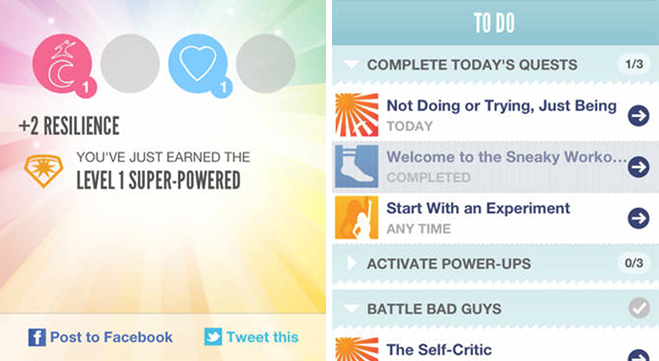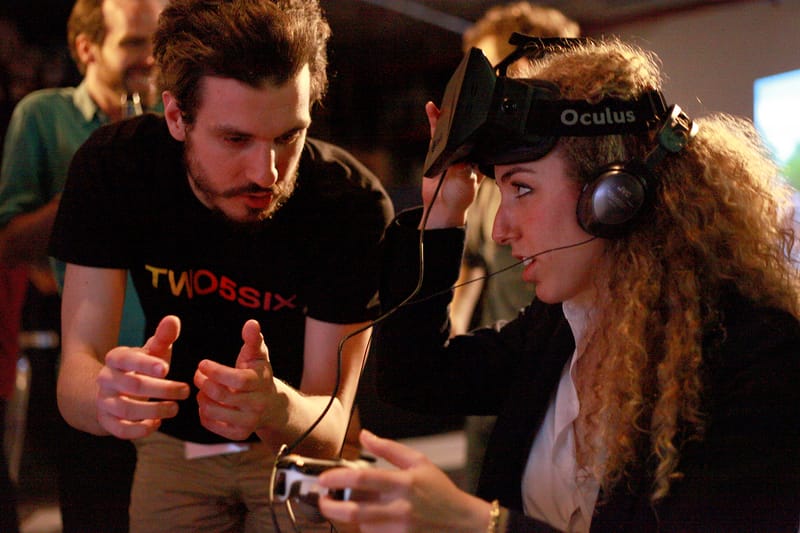This article is part of a collaboration with iQ by Intel.
The hierarchy of airline passengers used to be simple dichotomy. You either flew first-class, or you didn’t. Book a standard flight on Delta Airlines today, though, and you’ll notice a new option. For just $9 extra, you can upgrade your seat to “Economy Comfort.” The advantages are many: priority boarding, fifty percent more seat recline, four inches more legroom. And with space at a premium and fuel costs surging, airlines are looking for any advantage they can offer.
So you plunk down into your seat, pull out your tablet, and fire up a round of Clash of Clans. Invaders are gathering to the north. You commence building a new barracks to strengthen your defenses. The construction will finish … in twelve hours. You spot an aggressive clan on the outskirts of your map. There’s no time. You pay $1 to speed up construction and successfully defend your village. Then you recline, fifty percent more than those suckers behind you, and realize your real-world comfort and in-game success both came from the same source: microtransactions.
Your real-world comfort and in-game success both came from the same source: microtransactions.
Games used to be an escape. For many, they still are. But slowly, those same rules that dominate our virtual spaces are impeding on our actual lives. Some see the results of this, known as “gamification,” as an unfortunate slide into a rewards- and pay-based culture, where we’ll stop doing things for their own sake. Others find much to be gained from a more game-ish reality.
Kevin Werbach and Dan Hunter co-wrote For the Win: How Game Thinking Can Revolutionize your Business. These are no developers-turned-armchair-economists: Werbach teaches at University of Pennsylvania’s prestigious Wharton School of Business, and Hunter ran the New York Law School’s Institute for Information Law and Policy. When a business successfully taps into the tenets of game-playing, Hunter says, it breeds “meaningful competition.” This isn’t about administering false limits and paywalls. To “gamify” means to accentuate the joy of work, to spotlight the satisfaction of doing something good, but better.

Games offer blueprints beyond the financial world. Jane McGonigal is well-known as an advocate for games providing a framework to improve our lives. She helped design an online game that directly affects our offline reality, called SuperBetter, so that players “build personal resilience in the face of a serious challenge — like an illness or injury, anxiety or depression.” The same way an RPG character gains attributes by defeating monsters throughout a long, grinding quest, McGonigal and her team hope to enable the average person, struggling through their own personal, no-less-heroic journey, to build up their “stats,” as it were.
During her TED talk in 2010, viewed by over 3.5 million people, McGonigal summed up her point thusly: “We have to start making the real world more like a game.” Four years later, evidence suggests we’re on our way. Open up your Clash of Clans game again; you pay real money to buy in-game currency called Gems which allow you to get stronger. Yet beyond your tablet, the inverse now exists. Witness the rise of Bitcoins, a virtual currency now accepted by a growing number of online retailers and local shops alike to buy real-world goods. You can go to Overstock.com, purchase a 20-piece dumbbell set of weights (to get stronger), and pay with Bitcoins today. Even the vocabulary of this new e-currency is borrowed from strategy games; generating new bitcoins is called “mining,” the same process used by World of Warcraft players to dig for gold.
Online dating has long had a whiff of role-playing to it.
The gamificiation of our daily life is not limited to how we buy things, or how we feel about ourselves, but also how we interact with others. Online dating has long had a whiff of role-playing to it. The latest move by Match.com only accentuates how meeting new people has become just another game we play. Just last month, Match.com released a new app for users that includes a mode called Mixer. It culls data like geography, interests, and compatibility and presents you with a feed of pictures and information on people in your area. Much like Tinder, another dating platform based on proximity, you have two simple choices: Swipe your tablet’s screen right if you like them, or swipe left if you don’t. Mutual “likes” are communicated to the other; a real-world connection is just a text away.
What used to be a complicated mating ritual—the cold approach, the blind date, the slow burn of affection from across the office—is now rendered down to the same physical gesture used to match a trio of puzzle pieces in Candy Crush Saga. But we’ve yet to go far enough. When we can pinch the seatback in front of us and reduce turbulence, or double-tap an icon to quell the crying baby’s hysteria across the aisle during a redeye flight… ah, that will truly be an epic win.





